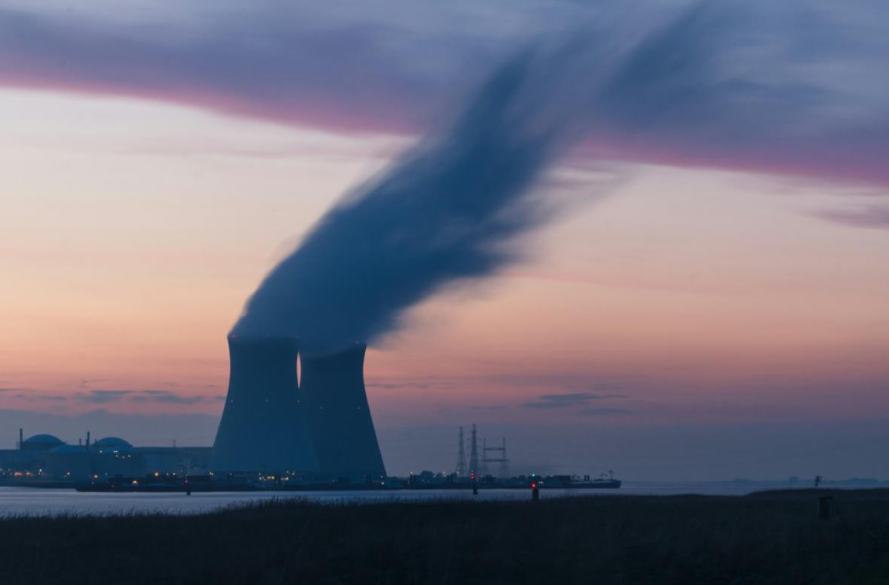Date: 25 November 2024, Author: Paulina Natalia Jarocińska
Russian Disinformation and its Influence on the Energy Sector in V4 Countries
The energy sector is the main common component of the security policy of the Visegrád Group (V4) countries. For years, Poland, the Czech Republic, Slovakia, and Hungary relied heavily on the import of Russian gas and oil.

However, following Russia’s invasion of Ukraine in 2022, these nations faced the urgent necessity to diversify energy sources and build energy independence. At the same time, Russia launched an intensive disinformation campaign aimed at weakening these efforts and destabilizing cooperation among V4 countries.
Russia’s hybrid warfare strategy extensively targets the energy sector, a cornerstone of national security for the Visegrád Group. Key mechanisms include widespread disinformation campaigns in both traditional and social media, as well as cyberattacks on critical energy infrastructure. Disinformation campaigns are often framed to cast doubt on the effectiveness of Western-aligned energy projects, emphasizing supposed inefficiencies or failures. Social media platforms amplify these narratives, leveraging their extensive reach to sway public opinion. Simultaneously, cyberattacks target the functionality of energy systems, aiming to destabilize supply chains, erode confidence in domestic and regional energy resilience or even create internal division within V4 countries.
Post-2022 Energy Status Quo in the V4
In Poland, as reported by PKN Orlen (a leading Polish energy company), Russian gas constituted 61% of the country’s total gas imports in 2021, amounting to 9.9 bcm. By 2024, however, Poland had effectively eliminated its dependence on Russian gas, primarily due to major infrastructure projects such as the Baltic Pipe, which commenced operations in late 2022, and the expansion of the LNG terminal in Świnoujście [1]. The Czech Republic, being landlocked and historically reliant on Russian supplies via Slovakia, faced similar challenges. In 2021, over 90% of its gas imports originated from Russia. By 2024, this reliance was reduced to near-zero levels through the establishment of alternative supply routes via interconnections with Germany and transitioned to importing natural gas from Norway and liquefied natural gas (LNG) through a Dutch terminal, replacing supplies previously sourced from Russia [2]. Slovakia similarly reported an 85% dependency on Russian gas imports in 2021. By 2024, this figure had decreased to below 50%, facilitated by the construction of interconnectors with Poland, as well as access to LNG supplies through regional collaboration [3]. Hungary remained the most reliant on Russian gas among the V4 countries, with over 85% of its imports sourced from Russia in 2021. Although diversification efforts progressed more slowly in Hungary compared to its regional counterparts, by 2024, the share of Russian gas had declined to approximately 60%, partly due to EU-led initiatives and agreements for alternative supply sources [4]. The situation, however, is more complex when considering other energy sources, such as crude oil and solid fuels, which present additional challenges for diversification and energy security strategies within the region.
Examples of Russian Disinformation in V4 Countries (2022–2024)
In Poland, Russian disinformation has targeted key energy diversification projects, such as the LNG terminal in Świnoujście and the Baltic Pipe. Narratives have falsely claimed inefficiencies and exaggerated costs associated with the Świnoujście terminal, a cornerstone of Poland’s LNG import strategy. Similarly, false reports about technical malfunctions, delays or even abandonment of the construction of the Baltic Pipe—a project linking Norwegian gas supplies to Poland, are widely circulating in social media [5]. According to representatives of Enea, a leading Polish energy provider, a recent form of attack on the energy sector includes accusations of collusion with PGE and charging disproportionately high profit margins [6].
These narratives aimed to create public doubt about Poland’s ability to transition away from Russian gas successfully. Despite these efforts, Poland has maintained strong public and political support for these projects, demonstrating resilience against such disinformation. The scale of disinformation in the energy field is truly noticeable. Based on research conducted by the Polish Association of Combined Heat and Power Plants (PTEZ), it appears that over half a million posts on social networking sites in some way replicate false content relating to the energy sector [7].
The Czech Republic and Slovakia have been a target of Russian narratives undermining the role of nuclear energy in their energy strategy. Disinformation campaigns have criticized plans to expand nuclear power facilities, emphasizing exaggerated environmental risks and potential dependency on Western technologies. At the same time, pro-Russian outlets have promoted narratives suggesting the inevitability of Czech reliance on Russian gas. These narratives gained traction on social media but were countered by public awareness campaigns and Czech partnerships with EU energy initiatives, including interconnectors with Germany that facilitate access to non-Russian supplies [8].
Hungary has faced a particularly aggressive disinformation campaign, with Russian narratives suggesting that EU sanctions against Russia have disproportionately harmed Hungary’s economy. These narratives aimed to foster anti-EU sentiment and portray energy diversification efforts as futile or damaging. Pro-Russian outlets also amplified claims that Hungary’s energy prices were rising due to its alignment with EU energy policies rather than because of market dynamics or prior dependence on Russian supplies. While Hungary has reduced its imports of Russian gas, the slower pace of diversification compared to its V4 peers highlights the impact of Russian disinformation in shaping public opinion and policy hesitancy [9].
Russian disinformation in the energy sector has targeted the V4 countries with tailored campaigns aimed at undermining energy diversification efforts and fostering disunity. By leveraging disinformation and cyberattacks, Russia seeks to maintain its influence in the region despite its diminishing role as a primary energy supplier. These efforts include promoting false narratives about the inefficacy of Western-backed energy projects, exaggerating the costs of transitioning to alternative energy sources, and sowing doubts about the reliability of new infrastructure such as LNG terminals and interconnectors.
The V4 countries, however, have demonstrated significant resilience by strengthening regional cooperation, investing in infrastructure for energy diversification, and enhancing public awareness of disinformation tactics. Initiatives such as the Poland-Slovakia interconnector and the Baltic Pipe project exemplify how coordinated efforts can reduce dependency on Russian gas. Additionally, campaigns to debunk fake news and promote transparent communication have been key in countering the influence of Russian propaganda.
One notable example is the anti-disinformation campaign launched by the Polish Electricity Association (PKEE) to combat Russian propaganda in the energy sector. This initiative focuses on raising awareness about the risks posed by disinformation and promoting factual information on energy diversification projects. By utilizing social media and educational materials, the campaign aims to counteract false narratives that undermine trust in alternative energy sources and infrastructure development. Such proactive measures by organizations like PKEE play a critical role in fortifying public understanding and trust, ultimately reducing the impact of Russian disinformation on energy policies and public opinion across the V4 region10. While challenges remain, particularly in countries with slower diversification processes, the collective efforts of the V4 highlight the importance of unity in confronting hybrid threats.
About Author:
Jarocińska Paulina Natalia is a doctoral student at East China Normal University in Shanghai. Her core research interests revolve around the impact of social media on politics, populism, European integration and EU – China relations.
Bibliography:
- Bleyer-Simon, K. Disinformation landscape in Hungary. June 2023. https://www.disinfo.eu/wp-content/uploads/2023/06/20230521_HU_DisinfoFS.pdf
- Central Europe makes progress towards energy independence. Economist Intelligence. September 8, 2023. https://www.eiu.com/n/central-europe-makes-progress-towards-energy-independence/.
- Dezinformacja na temat energetyki stanowi 20 proc. polskiego internetu. Jak reaguje sektor?. E-logistyka. September 27, 2023. https://e-logistyka.pl/wiadomosci/biznes/dezinformacja-na-temat-energetyki-stanowi-20-proc-polskiego-internetu-jak-reaguje-sektor/.
- Enea: Atak na spółki energetyczne to element wojny hybrydowej. Ma osłabić ich pozycję i bezpieczeństwo energetyczne kraju. October 10, 2022. https://zielonagospodarka.pl/enea-atak-na-spolki-energetyczne-to-element-wojny-hybrydowej-ma-oslabic-ich-pozycje-i-bezpieczenstwo-energetyczne-kraju-8669.
- Jakóbik, W. PGNiG: Baltic Pipe nie będzie stał pusty. To dezinformacja. September 23, 2022. https://biznesalert.pl/pgnig-baltic-pipe-pusty-dezinformacja-energetyka-gaz/.
- Orlen poradził sobie bez rosyjskiego gazu. Cleaner Energy. March 1, 2024. https://cleanerenergy.pl/2024/03/01/orlen-poradzil-sobie-bez-rosyjskiego-gazu/
- Paličková, A. Černoch, F. (2024). Gaslighting Europe: Russia’s energy disinformation in the Czech Republic. Energy Research & Social Science.
- Paszkowski, M. Czechy i Słowacja: kontynuacja wysiłków na rzecz dywersyfikacji dostaw gazu ziemnego, „Komentarze IEŚ”. nr 831. July 28, 2023. https://ies.lublin.pl/komentarze/czechy-i-slowacja-kontynuacja-wysilkow-na-rzecz-dywersyfikacji-dostaw-gazu-ziemnego/.
- PKEE Campaign launches againts Russian disinformation in the energy sector. PKEE Polish Electricity Association. October 3, 2022. https://pkee.pl/en/aktualnosci/rusza-kampania-pkee-przeciwko-rosyjskiej-dezinformacji-w-energetyce/.
______________________
The project is co-financed by the Governments of Czechia, Hungary, Poland and Slovakia through Visegrad Grants from International Visegrad Fund. The mission of the fund is to advance ideas for sustainable regional cooperation in Central Europe.

Support Us
If content prepared by Warsaw Institute team is useful for you, please support our actions. Donations from private persons are necessary for the continuation of our mission.
All texts published by the Warsaw Institute Foundation may be disseminated on the condition that their origin is credited. Images may not be used without permission.














